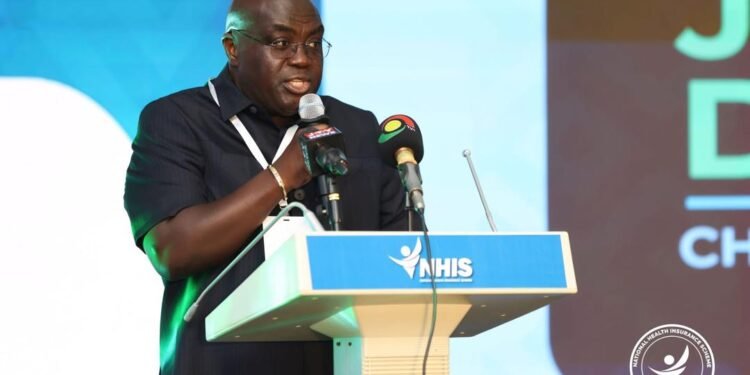Fidelity Bank Ghana has once again demonstrated its unwavering commitment to sustainable finance and climate-smart innovation by investing GH¢1 million to scale up 16 pioneering climate-smart enterprises under the second edition of the GreenTech Innovation Challenge (GTIC).
Organized in partnership with Innohub, the initiative reaffirms Fidelity Bank’s leadership in driving Ghana’s sustainability agenda through the fusion of finance, innovation, and technology. The second edition of the GreenTech Innovation Challenge culminated in a pitch event at the West Africa Centre for Crop Improvement (WACCI) at the University of Ghana, Legon, bringing together innovators, financiers, and ecosystem partners to celebrate Africa’s evolving climate innovation landscape.
The event highlighted the increasing role of private sector actors like Fidelity Bank in supporting small and medium-scale enterprises (SMEs) working to solve pressing agricultural and environmental challenges.
Empowering Climate-Smart Enterprises with Strategic Funding
After a competitive selection process involving 25 enterprises, 16 outstanding businesses were shortlisted for the main pitch. These enterprises presented innovative solutions spanning precision agriculture, post-harvest management, digital financial services, climate-smart agriculture, and value chain optimization.
From the final pitch, AgriCentric Ventures, Peellnnova Limited Company, and Danny Machinery emerged as the top three winners, receiving GH¢200,000, GH¢100,000, and GH¢70,000 respectively. The remaining 13 enterprises each received GH¢50,000 in grant support to scale their green solutions.
These grants are designed to empower the selected businesses to expand their operations, adopt modern technologies, and develop climate-resilient solutions that can be replicated across Ghana and beyond.
To ensure that the funds translate into measurable and lasting impact, Innohub, the implementing partner, will provide all 16 businesses with six months of intensive business incubation and acceleration services.
This structured support program will help the entrepreneurs refine their business models, enhance operational efficiency, secure follow-on funding, and transition from promising startups into commercially viable enterprises.
The incubation process will also focus on sustainability-driven capacity building, technical mentorship, and investor readiness. This holistic approach ensures that the enterprises not only scale but also remain resilient in addressing climate-related challenges within Ghana’s agricultural ecosystem.
Fidelity Bank’s Commitment to Climate Finance
Speaking at the event, Nana Yaa Afriyie Ofori-Koree, Head of Partnerships, Sustainability, and CSR at Fidelity Bank Ghana, underscored the strategic importance of the initiative.
“The agriculture sector is the cornerstone of Ghana’s economy and remains the most vulnerable to climate shocks. Our commitment to the GreenTech Innovation Challenge is a strategic investment in the future of our nation’s food security and economic resilience.”
Nana Yaa Afriyie Ofori-Koree
She added that the success of the second edition of the GreenTech Innovation Challenge demonstrates how technology, finance, and entrepreneurship can converge to tackle Africa’s most pressing challenges.
Fidelity Bank’s involvement in the GTIC aligns with its Sustainability and Environmental, Social, and Governance (ESG) framework, which prioritizes climate finance, innovation, and inclusive growth.
Innohub Celebrates a Model Partnership for Sustainability
Mami Serwaa Amoakohene, Chief of Staff at Innohub, celebrated the strong partnership between the two institutions, noting that it serves as a benchmark for sustainable private-sector collaboration.
“The collaboration between Fidelity Bank and Innohub represents what’s possible when the private and development sectors work hand in hand. It’s a model for how Africa can finance its future sustainably.”
Mami Serwaa Amoakohene
According to her, the 2025 edition of the GreenTech Innovation Challenge builds upon the success of the 2024 inaugural program, which saw several startups gain visibility and secure additional investment.
She emphasized that Innohub remains committed to providing continuous handholding, technical support, and access to follow-on funding and markets to help these climate-focused ventures grow into powerful stories of impact.
Building a Sustainable Future for Ghana
Through initiatives like the GreenTech Innovation Challenge, Fidelity Bank is doing more than just financing green ideas—it is building a community of sustainability champions.
The bank’s deliberate focus on supporting SMEs engaged in green innovation speaks to its understanding that sustainability must be central to Ghana’s long-term economic transformation. By empowering these enterprises, Fidelity Bank is contributing to job creation, food security, and environmental protection, while inspiring a new generation of entrepreneurs to view sustainability as a business opportunity rather than a challenge.
The collaboration with Innohub ensures that these young innovators are not only funded but also guided toward long-term business sustainability, scalability, and measurable climate impact.
READ ALSO:New Dawn for Cedi: End Dollarization Now, Ato Calls























